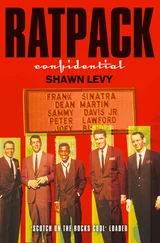“Yeah, I’m afraid Lori was fucking your little redskin. Worse than I even thought. I mean, you live your life, you make your plans, you try to do the right thing, and what happens? What happens, kid? I’m asking you.”
“I don’t know.”
“You do know! You do know because I just told you! What happens,” Baker says, “is you ate all the horses and it won’t stop snowing and the girl you love is fucking some dirty Indian nigger and you have to figure out what to do about it.”
He whistles and clicks his tongue.
“Gotta figure out who to eat.”
• • •
She feels almost sick going back into that house. A little dulled and confused. An unplugged lamp sits on the floor, cord like a tail, and trapezoids of moonlight, cast through the windows, hang on the bare walls. Ghosts of missing furniture haunt the carpet.
“This place is huge,” Boyd says, flipping on a light. Loretta flips it back off. “Let’s not go announcing ourselves,” she says. She sets down her duffel bag. The gold inside — the coins in the canvas sack, rolled tightly inside one of her denim skirts — clangs dully on the linoleum entry. She kicks off her shoes. Force of habit. Ruth’s rules. Boyd wanders the carpet in his dirty gray tennis shoes, gazing up at the high ceiling like he’s in a cathedral. It’s past ten, late for around here, but who knows who might see a light and get interested. She’s not sure whether the United Order might stop by. The God Squad. She’s not sure it isn’t officially Uncle Elden’s house or the Order’s house. They own everything. But Dean’s key worked on the front door, and she’s soon to see about the others. She’s gripping them so tightly they might be cutting into her palm.
It’s time to tell Boyd, probably. She looks at him to begin and sees he is coming her way, his best attempt at a romantic look on his face, eyebrows raised. It never ends, these men coming at her. She can tell he is nervous, half embarrassed. She misses Bradshaw and his crazy confidence.
“Stop it,” she says, though she smiles to soften it. “I’ve got something to show you. To tell you.”
They sit on the floor in the darkened, moonlit room. She explains about the coins she has. She explains about the gold that is still, now, she thinks, locked in Dean’s office. “Gold!” Boyd says. “Fuckin’-A!” She unwraps and shows him the coins, thick and heavy, gleaming richly, almost amber in the dim light, and she lets him hold them, and he seems awestruck. He keeps saying it, a prayer or a curse: “Gold!” She tells him about the Sutter Creek gold, how important it is to Dean, and how important that is to her.
“I want to take it from him, and I want him to know I took it from him, and I want him to know that I knew how important it was to him when I took it,” she says.
Boyd is looking at her strangely.
“Lori,” he whispers. “Why did he leave that gold down here? In an empty house?”
“What?”
“Why did he leave it here? Why would he?”
It does not dawn on her slowly. She does not have to think it over. It reminds her of a crash she once had on a bicycle; one moment she was moving along one way, and then she abruptly was not, and the blow that struck her felt not like it came from a specific direction but from everywhere at once. Why had she ever thought the gold was here? She couldn’t remember.
“Lori?”
She takes the coins and wraps them back up, then goes to the door to Dean’s office, the white cube at the back of the room off the kitchen. The key slides and turns. She puts on the light in the windowless room. It’s half emptied, too — some of Dean’s books remain, some files, a pair of his Red Wings on the floor beside the chair, one tipped on its side. She goes to the cabinet, to the bottom drawer, and takes the smaller key between her thumb and forefinger. The key slides and turns, and the drawer pulls out, and the drawer is empty.
“Well, shit,” Boyd says.
She sits in the chair heavily.
“Who cares?” Boyd says.
She cares. This is not his to judge, to care about or not care about. She kicks idly at the metal drawer, and then again, harder. She thinks back: The Sutter Creek gold wasn’t with the coins, she knew that. Didn’t she know that? And she had looked everywhere through that house up in Idaho, everywhere she could think of, every chance she had. And then — what? Why had she decided it was here? He told her. Hadn’t he? The idea seems so ludicrous now. So clearly, obviously ludicrous. She feels stupid. As stupid as Jason. As stupid as Boyd.
“We should get out of here,” she says.
“We’ve still got the coins, though,” Boyd says.
She doesn’t answer. We . His big hurt brown eyes. How could she have done what she did with him? She feels a pang of judgment about herself: whore. Boyd flops onto the couch, arms outstretched, exhausted. She goes to the carpeted, banistered staircase and starts up. She will get her things, her shoebox, and they will go, and that will be okay, it will be all right, it will still be great that she has done this, that she has fled Dean and that life.
Boyd shouts, “Maybe we could just live here. Join the brethren.”
We. She reaches the top of the stairs, pads to the end of the hallway. Two small framed things remain on the walls, quotations Ruth has embroidered: “David’s wives and concubines were given unto him of me…”
She goes to her room. The sagging queen under the denim quilt. The dresser and its grimy mirror, where she watched Ruth braid her hair for the wedding. Out the window she sees the occasional farm light, spread thinly toward the spiny desert mountains. Loretta opens the drawers, empty, empty, empty. Then, in the bottom drawer, she finds her shoebox. Her eyes have become hot. She lifts out the box, opens it. Her throat feels thick and her scalp prickles. She sits on the padded stool before the dresser, and looks through the box. Her grandmother’s Christmas ornaments. Her diary. “The man I will mary.” Earrings. Arrowheads. A hazy photograph of herself as an infant, her parents huddled around her. She looks up and is startled by her image in the mirror: grief stricken, gunshot. She feels dimmed with a sorrow for all that is bygone and impossible and flown away. For all that has to be the way it is simply because it is over now, it has happened, and is never to be gotten back.
• • •
Jason wakes to a shove from Baker. “It’s go time,” he says.
The Nova creeps with its lights off, down a dirt road lined in ditch grass. Forms take shape. Ahead is a barny, big-shouldered house. They’re in the country somewhere. The stars look tiny and still, as though racing away from the earth.
“You snore like a girl,” Baker says.
“What time is it?”
Baker chuckles.
“You’re a funny kid. It’s late.”
“Where are we?”
“We’re there, buddy. The Crick. We are there.”
They stop in front of the house. It is dark, but for thin light through curtains in the biggest window. Ahead, sharked crookedlyonto the border where the lawn peters out into dirt, sits the LeBaron. Baker leans on the steering wheel and works his chin against a knuckle, staring at the house. Jason can see now that it is cheap, simple — wood siding in dirty cream paint, asphalt shingles. Small, dark, gabled windows. One thick strip of paint has peeled loose and bowed to the ground. A tricycle lies on its side on the grass.
“I don’t know what to do here,” Baker says. “What do you think I should do?”
“Maybe we ought to just leave.”
“Good one. Okay.” He pops the steering wheel with both palms. “Let’s go see our friends.”
Frosty grass crackles underfoot. The concrete step has a worn mat with the words WELCOME TO OUR HOME. Scuff marks cover the bottom of the wooden door. Baker looks around, thinking. He seems unconcerned about Jason and what Jason might do, and Jason wonders why it is so obvious that he will do nothing. Baker takes the doorknob. When it turns, he gives Jason a look of happy surprise and pushes it open. Inside, a linoleum entryway opens onto a carpeted cavern of a living room, half empty, that opens onto a kitchen at the back, where a single light is on. A disassembled living space remains — a love seat and end table that suggest where the rest of the missing furniture used to be. A couple of lumps — duffel bags, piles of clothes, a pair of tennis shoes that he recognizes as Loretta’s — sit on the floor. Baker walks in. Yawns. He stares out the kitchen window. The refrigerator hums. Baker turns and steps back through the kitchen quietly, and as he is doing so a door along the side of the room opens, and Boyd walks out, looking down as he buttons his jeans.
Читать дальше












